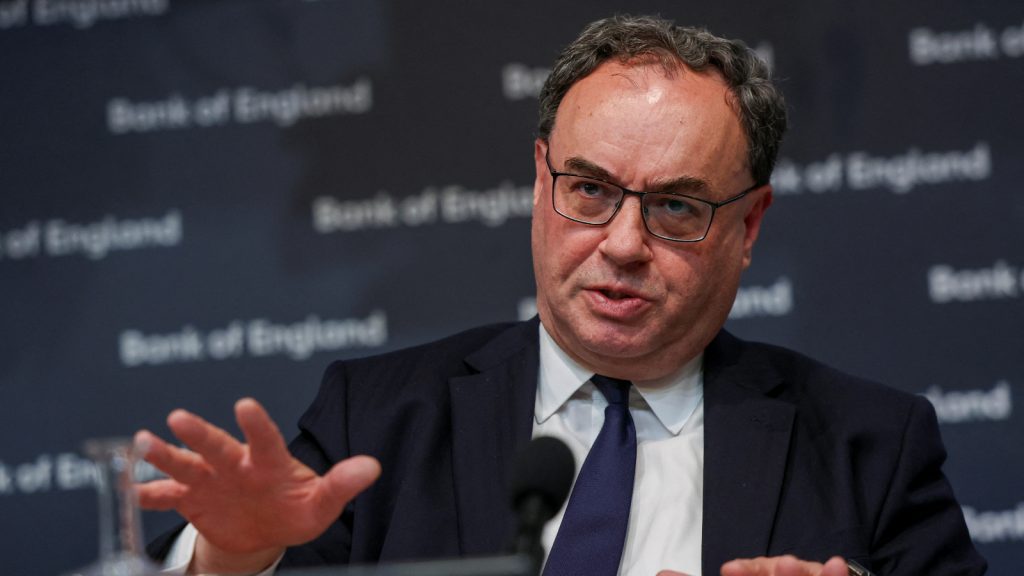
The UK must work to “rebuild relations” with the European Union while still respecting the outcome of the Brexit referendum, according to Andrew Bailey, Governor of the Bank of England. In a recent speech at the Mansion House, Bailey made some of his strongest comments yet on the lasting impact of Brexit, particularly its consequences on trade between the UK and the EU.
Although Bailey had largely refrained from discussing Brexit in the past due to the Bank’s independence from political matters, he acknowledged that the post-Brexit relationship with the EU had “weighed” on the UK economy. While maintaining his neutral stance on the referendum outcome, Bailey stated, “The impact on trade seems to be more in goods than services… But it underlines why we must be alert to and welcome opportunities to rebuild relations while respecting that very important decision of the British people.”
Bailey’s remarks align with broader government sentiment. Chancellor Rachel Reeves, speaking at the same Mansion House event, emphasized that the government does not seek to reverse Brexit or rejoin the EU’s single market or customs union. However, she stressed the need for a “reset” in the UK’s relationship with its largest trading partner, the European Union. She noted that while Brexit would not be undone, a more collaborative approach was necessary for future trade and economic prosperity.
The UK government remains firm on its stance of not rejoining the EU or the single market, but figures like former Deputy Governor of the Bank of England, Sir John Gieve, suggest that there is room for negotiation. Gieve proposed that the UK could work on securing deals that reduce trade barriers, particularly in areas like the customs union. “If we could, in due course, get close to joining the customs union, that would be a major help,” Gieve explained, adding that such a move would encourage investment in the UK by providing businesses with greater access to European markets.
Bailey also cautioned against focusing solely on Brexit’s impact. He highlighted the importance of addressing broader global challenges such as “geopolitical shocks” and the “fragmentation of the global economy.” His warning came after US President-elect Donald Trump suggested imposing tariffs on imports, a move that could further complicate international trade relations.
Economists are still evaluating the full impact of Brexit on the UK economy, with predictions that it could cost the country 4% of its GDP over the next 15 years. While trade in goods, particularly agricultural products, has been significantly impacted by new trade barriers, services such as banking have fared better than initially anticipated.
Vicky Pryce, Chief Economic Adviser at the Centre for Economics and Business Research, argued that Brexit has complicated the UK’s position with its major trading partners, especially the EU. She also questioned whether the UK could maintain a “special relationship” with the US while continuing to trade substantially with Europe.
Despite the challenges, some officials remain optimistic about the potential for improved relations between the UK and the EU. Spain’s Finance Minister, Carlos Cuerpo, suggested that a “better deal” could be reached between the two parties. Similarly, Sir John Gieve highlighted that although rejoining the single market may not be on the table, reducing trade barriers through new agreements would be a step in the right direction.
In her Mansion House speech, Chancellor Rachel Reeves also called for reforms to the UK’s pension system to stimulate economic growth. Reeves proposed merging local council pension funds to enable more significant investments and higher returns. While some critics have called this approach risky, Reeves argued that the UK’s current regulatory system, which seeks to eliminate risk-taking, has gone “too far.” She emphasized that the financial services sector remains a “crown jewel” of the UK economy but warned that the country could not take its position as a global financial center for granted.
Bailey echoed Reeves’ concerns about the UK’s economic stagnation. He pointed to declining productivity since the 2008 financial crisis, a trend that has not recovered. While this issue is not unique to the UK, Bailey noted that other countries, particularly in Europe, face similar challenges. However, he highlighted that the US has been able to demonstrate stronger productivity growth in recent years.
Both Bailey and Reeves also addressed the need for pension system reforms. Bailey noted that the UK’s fragmented pension system would require significant reforms to ensure its sustainability and better support long-term growth.
Meanwhile, Shadow Chancellor Mel Stride reacted to the proposed reforms by stressing that many of the ideas had already been pursued by the Conservative government. However, he criticized Labour’s recent budget, arguing that it sent the “wrong signal” to investors and wealth creators, potentially undermining efforts to stimulate growth.
In sum, the UK faces a complex path forward as it navigates its post-Brexit economic landscape. While Bailey and other officials advocate for stronger UK-EU relations, there is broad recognition that rebuilding these ties will require careful negotiation and collaboration, all while remaining mindful of the electorate’s decision to leave the EU. As the government seeks to balance Brexit’s consequences with broader economic reforms, the coming years will be crucial for the UK’s economic recovery and future prosperity.








